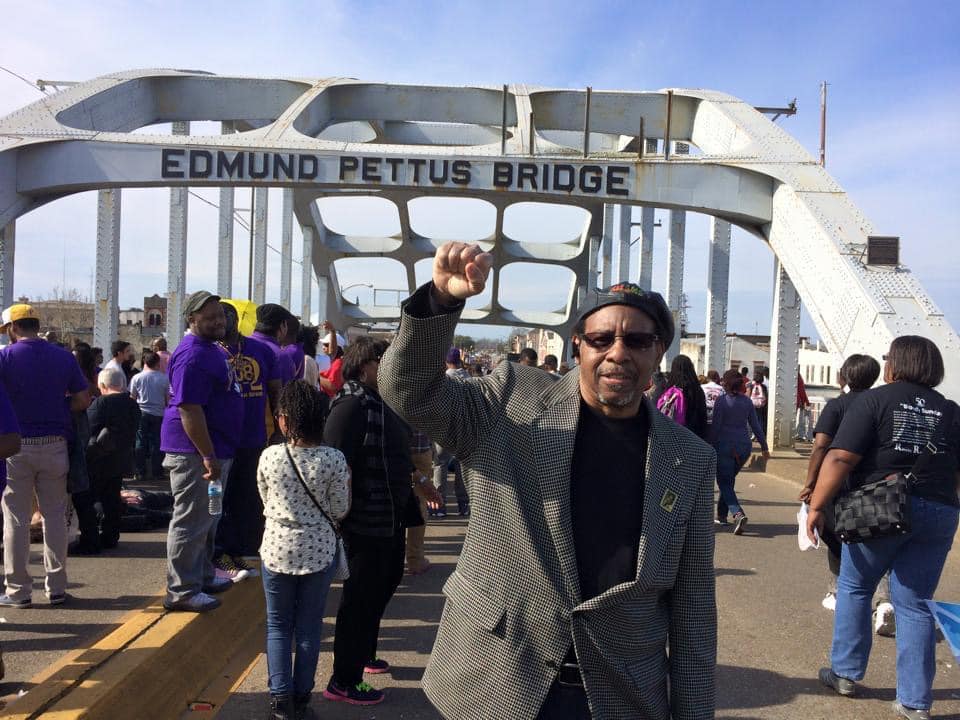 Author: Imam Khalid Shaheed, Masjid Al-Islam and Lifelong Friend
Author: Imam Khalid Shaheed, Masjid Al-Islam and Lifelong Friend
Thomas Muhammad was my dear friend and an absolute legend in the truest sense of the word, both locally and nationally. He was a community organizer, a freedom fighter, a writer, a leader of organizations, a mentor, a confidante to civic leaders and elected officials, a film producer, a political activist, a humanitarian, a devout Muslim, a Hajji, a visionary, a founder of many organizations.
He participated as a board member of many local and national organizations and received over a dozen awards and plaques to recognize his life's accomplishments.
Above all, Thomas Muhammad was my dear friend. As I write this obituary, I struggle to find where to start and worry that I will miss something fundamental about his life's story.
I befriended him almost 40 years ago at Masjid Al Islam in Dallas, Texas. Thomas was instrumental in the African American Men against Narcotics (AAMAN), and he set our agenda for weekend activism. AAMAN was a group of Muslim brothers who regularly patrolled neighborhoods and closed down dozens of crack houses in South Dallas.
Shortly after Masjid Al Islam and civic and religious black leaders started attending monthly Dallas leadership luncheons where Thomas was one of the chairpersons and main organizers. These luncheons included leaders such as Commissioner John Wiley Price, Diane Ragsdale, and other notables from the black community. Many of these luncheons were held at St. Luke Church. Our goal was to work with other faith communities and activities in the black community to uplift, empower, and strengthen south Dallas.
Thomas also became a co-founder and vice president of the Executive Board of the Inner City Development Corp (ICDC). This non-profit organization focused on constructing and providing affordable houses in impoverished communities in Dallas. His organization-built hundreds of affordable homes in the inner city and offered many programs to residents of South Dallas.
During the 90s, I remember Thomas organizing rallies, protests, marches, and picket lines to tackle various issues. He was a key leader, whether it was racism at City Hall, negative portrayal of the black community in the mainstream media, or standing for Palestinian rights. A significant issue at the time was advocating for a single-member district city government and city council. This campaign was successful and represents the current Dallas city government. He was passionate about exposing the plight of Black people in America and connecting it with the struggle of Palestinians. He was a dynamic supporter of the Holy Land five. He spoke at press conferences and with people of power to stand in solidarity.
Thomas never backed down and was unapologetic, a trait many leaders today can struggle with.
He became the Chairman of the National Black United Front, Dallas Chapter (NBUF-Dallas). Here he pushed for cultural development in the black community. He had a unique knack for bringing notables together of different backgrounds. Even after his passing, he was and is a highly respected legend in the Black Christian Community. His coalition building was unmatched as he brought together Pan Africanists, civil rights activists, religious leaders, black leaders, African American Muslims, and the immigrant Muslim community to work on common problems.
In Alabama, he was on the board that sponsored the reenactment of the "Bloody Sunday" walk across the Edward Pettus bridge. I remember Thomas going to Alabama every year for this historical remembrance. It allowed him to network with many National figures and link-local struggles with national struggles.
Politically, Thomas was a state leader of the Green party. Often he would share with me his reasons for supporting their candidates. He was also a confidante of top city leaders in Dallas. Regularly Thomas would bring city council officials, Dallas Police chiefs, Mayor Eric Johnson, and other leaders to Masjid Al Islam to build bridges. You could not represent District 7 on the Dallas city council unless you got Thomas Muhammad's endorsement.
Thomas was not just a one-man show. His strength was his ability to give others roles, duties, and the spotlight. He put me in regular positions to speak at rallies and other programs he would organize.
His voice was enhanced as he was a regular writer for Dallas weekly, Texas Metro News, and other newspapers. I remember introducing him as a 'Civil Rights" pioneer, and he corrected me that he was not a civil rights pioneer but had always been a "Freedom Fighter." He told me that his religion is orthodox Islam, but his politics was Black Liberation.
He became a filmmaker and produced a film on Malcolm X, 'Malcolm X: An Overwhelming Influence on the Black Power Movement.' I remember his passion for this project and his desire to preserve Malcolm's legacy for the next generation. Thomas was a dedicated student of Malcolm X. He traveled the country doing interviews and putting the film together. The film received national acclaim, and it appeared at New York and California Film Festivals. I would go with him locally to several churches where he showed this film. He introduced me to many Christian Ministers. Sometimes he would ask me to open with a prayer.
He often brought Malcolm's daughters to Dallas and used the film as a da'wah tool and to get the black church leaders and Muslims to build solidarity. He did this around the city and country.
Later he would become the Board President of the Duncanville Islamic Center. Thomas pioneered intra-faith relations among African American Muslims and the immigrant Muslim community. He insisted that we learn from each other, support and cooperate. He shows us that the plight of the Muslim community in America and black people intersected in many ways. His vision was to see these two communities work hand in hand to build a better society for all.
What I found most intriguing and unique about my friend was his ability to weave together Christians, Muslims, black people, brown people, immigrant Muslims and African American Muslims. He was comfortable and functioned well in all these spaces.
In my 70 years on this earth, I can honestly say I have never met anyone like Thomas Muhammad. We were friends for decades, our wives knew each other, and I even officiated his wedding/nikah. We grew old and were like the Sabaha around the Prophet Muhammad (Peace be Upon Him).
This short piece does not do justice to this brother. His accomplishments are too numerous to mention. He was the embodiment of what a lifelong community leader should be. To live a life of activism, serving others, and bringing diverse communities together to address common challenges.
No matter how accomplished and dear a person is, we are reminded of the Qu'ranic verse, "Verily we belong to Allah and verily to him do we return." Ya Allah allow him Honor in the grave, Honor when he is resurrected and Honor in the Home of Peace, ameen.
By Khalid Shahid, Imam Emeritus Masjid Al Islam Dallas, National board member MABL, Muslim Alliance for Black Lives, Civil rights Veteran of Mississippi Civil Rights Museum.

